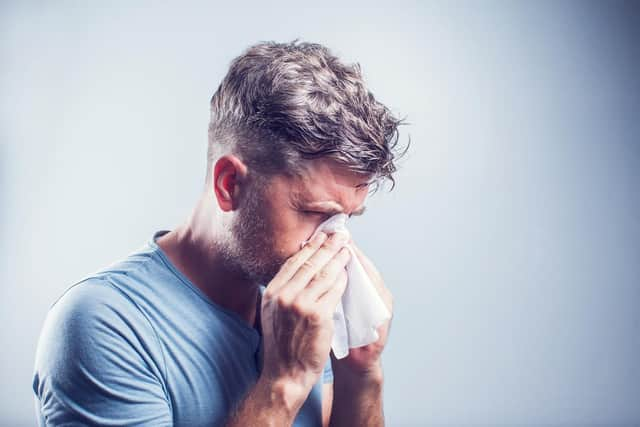Burnley hayfever sufferers warned over this summer's super pollen which could trigger 'thunder fever'
and live on Freeview channel 276
Hayfever can make life miserable for those with the condition, especially those with severe symptoms. It can greatly interfere with the sufferer’s sleep, affect their daily routines, and disrupt their productivity at school or at work.
Thunder fever is an extreme form of hay fever and super pollen occurs when high humidity splits pollen grains into tiny, highly potent particles.
Advertisement
Hide AdAdvertisement
Hide AdThunder fever refers to specific thunderstorm and super pollen conditions that combine to increase the chances of hay fever and asthma sufferers experiencing symptoms which are particularly intense.


Asthma sufferers are also at risk of having an asthma attack due to thunder fever.
Whare are the symptoms of hayfever?
Sneezing and coughing
A runny or blocked nose
Itchy, red or watery eyes
Itchy throat, mouth, nose and ears
Loss of smell
Pain around your temples and forehead
Headache
Earache
Feeling tired
What treatments are available for sufferers?
You can treat thunder fever using the same medicines used to treat hay fever, such as antihistamines, nasal spray, eye drops and an inhaler.
How can I reduce the effects of hayfever/thunder fever?
Use preventative medication such as eye drops and nasal spray regularly
Always carry an asthma inhaler
Advertisement
Hide AdAdvertisement
Hide AdKeep up to date with pollen counts and weather forecasts during spring and early summer so you know about potential storms
Talk to your doctor to make sure your written asthma action plan is up to date and includes thunderstorm advice
Avoid being outdoors just before and during thunderstorms, especially in wind gusts before the rain
Remain inside a building or car with the windows shut for as long as you can
Advertisement
Hide AdAdvertisement
Hide AdUse an air conditioner or purifier if possible, and have it set to recirculate or recycle
Wear sunglasses when you go outside to stop the pollen getting into your eyes
Shower regularly, particularly after being outdoors, to remove pollen from your hair
Is there any other advice for summer?
On staying well during the hot weather, Medical Director for St John Ambulance Dr Lynn Thomas, said: "We want everyone to enjoy themselves this summer, but also to take extra care in the warm weather and look after one another.
Advertisement
Hide AdAdvertisement
Hide Ad"If you're out and about in the sunshine, it's important to make sure you look after yourself by staying hydrated, keeping out of the sun at peak times, and by wearing sunscreen with a minimum SPF 30.
"I would also encourage anyone with elderly relatives and neighbours to check in with them, as any increase in temperature can be dangerous.
“Make sure you go out prepared, and can spot the early warning signs, as by knowing what action to take could stop it turning into something more serious.”